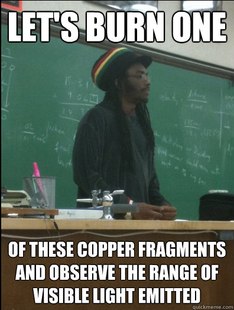As many of you know, I'm a Packer fan. A huge Packer fan, in fact Recently, a beloved player of mine, Greg Jennings, signed with the Vikings, a team I have always considered to be my biggest and most bitter of rivals.
 |
| Picture taken by me during my second visit, c. 12/2010. |
When I heard the news, I was less than angry. And by that I mean I wasn't angry at all. I was indeed happy for Greg. This is a great opportunity for him, I thought, to be the true number one receiver on an up-and-coming team that needs a big time wide-out and a fat pay raise to boot. You might think this an odd reaction.
Consider this: You work at a big-time advertising agency and you've developed a close relationship with one of your colleagues. Your agency has long been in competition with a neighboring firm, leading to a constant back-and-forth battle for clients. The peer you've become close with is good at what he/she does. Very good. He/she is a noticeable part of the agency's success. When you learn that this peer has applied for and received a new job at your rival agency, how do you react?
Admittedly, I might feel a little angry/betrayed for a spell, but I'd quickly realize that this man/woman was my friend and my job as his/her friend is to be happy for their success. A promotion and pay raise, no matter the source, is a great success for my friend, so how could I not be happy for him/her?
That's how I think of the Greg Jennings move. Greg is a class act and an exceptionally talented football player, not to mention a great personality on TV, so I truly wish him the best in his career with the Vikes.
However, I've yet to see one other Packer fan share my view on this. On Reddit a couple of weeks ago, the #1 post on the Green Bay Packers subreddit was titled "Greg is making it harder to hate him for [signing with the Vikings]." and contained a screenshot of Greg's Facebook sign-off to Packer fans (a very sentimental, heart-felt sign off, at that).
I couldn't hold my tongue.
I tried to say that we as Packer fans don't have to automatically hate a player just because he leaves for a rival team, especially as one as amiable and well-liked as Greg. I said it was possible for one to root for a player and not for a team, giving the example of drafting Brandon Marshall in fantasy football--rooting for him to score TDs/get yards but still rooting against the much-loathed Bears. Literally no one shared my viewpoint and I was "downvoted into oblivion" as they say.
This is pretty ridiculous to me. Yes, Red Sox fans, I understand your hatred for Johnny Damon because in his case he said publicly he would never go to the Yanks but did anyway. Also, Cleveland Cavs fans, I 100% understand your contempt for Lebron because they way he left was, in one word, garbage, and the epitome of a "punk move".
But Packer fans hating Greg? There is nothing I find reasonable about that. And that's really what my point is here. I love sports. I love competition. I appreciate fan loyalty and take pride in the tradition and cohesive nature that comes with being a Packer fan. But when your fandom stands in the way of reason; when your love for a team distorts your perception of reality and makes you think irrationally, that's when it goes too far.
 |
| How could anyone hate this? |
I hate to say this (and some will hate to see me say it), but I've seen this plenty with Vikings fans (and other sports fans).
As a freshman entering college, I elected to have a random roommate assigned to me in the dorms. This roommate turned out to be from the Twin Cities area and several of his friends from that same area decided to attend UND as well. All characters. All good guys. All very opinionated...
All Vikings fans.
Coincidentally, freshman year was the same year that the Vikings nabbed Favre and went on their impressive playoff run. With each win, my friends furthered the illusion of invincibility with the Vikings and the cloud of arrogance emanating from each of their heads grew, merging into a thunderhead of pride so thick and stifling I nearly suffocated.
When the Vikings lost in the NFC championship game, my immediate inclination was to rub it in all their faces as justice for the miserable year I'd had hearing about how Super Bowl bound the Vikes were. But then I saw how devastated and deflated they were after the game, I solemnly bit my tongue.
Seeing those drear faces sparked a change within me. I realized that I cared about my friends and my friends deeply cared for the Vikings. Thus a Viking loss meant my friends weren't happy. Even as huge Packer fan, I could no longer take great pleasure (though I still do take some pleasure) in a Viking loss like I used to because I knew it ruined my friends' days .
To me, this fan mentality of "hate rivals at all costs no matter what" is petty and immature. I don't think it's reasonable at all but it seems expected of you once you commit to a certain team. It's what Psychology calls "Realistic Group Conflict Theory": two groups (fans of rival teams) each compete for scarce resources (wins, division titles, etc) which leads to prejudice. This is how I think most rivalries are formed. Prejudice in and of itself is unreasonable, as I hope all of you agree, so how is it any different when it comes to sports? I don't think it has to be that way. Yes, I will still cheer my guts out for the Pack when the play the Vikes and hope we stop Greg dead in his tracks, hold him to 2 catches for 20 yards every time we play them next season, but I'll still be rooting for Greg to make the Pro Bowl because he remains as one of my favorite receivers in the game as well as one my most cherished Packers of all time and seeing my friends happy at a Viking win will always make me happy.
I could delve further into this topic but since this post is running as long as the list of Packer Championships (HEYOO!!!), I'll end it with these: being a fan doesn't have to make you unreasonable; expectations for your team should always be grounded and realistic; hate the team, not the fans and players because they are people like you and I; there's always room for sportsmanship.
"Man, that salt in my wound feels really good! I love a little insult with my injury!" --No fan ever.
So don't be that guy.
 |
| This was uncalled for. I'm actually a Ponder proponent. |
Thanks for reading and go Marquette!
















